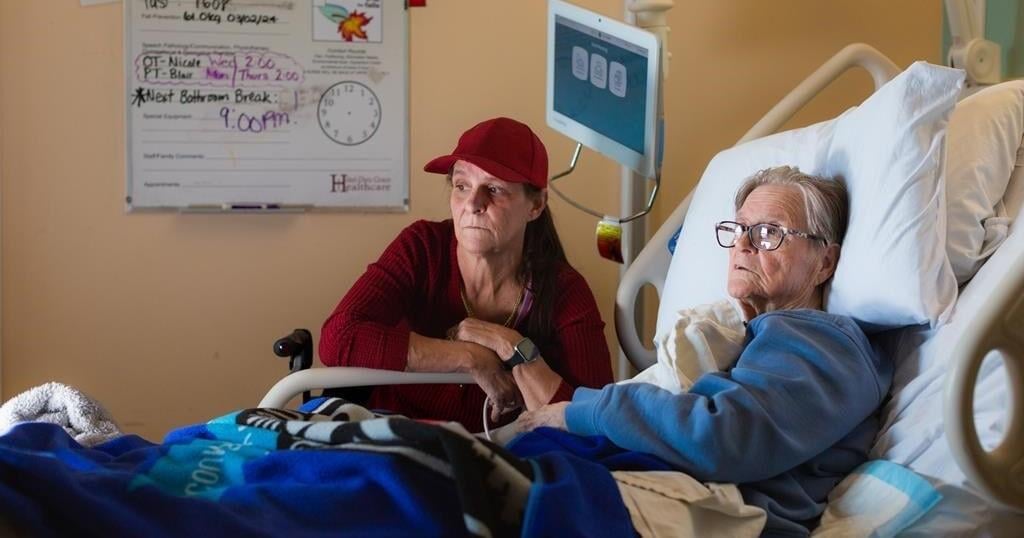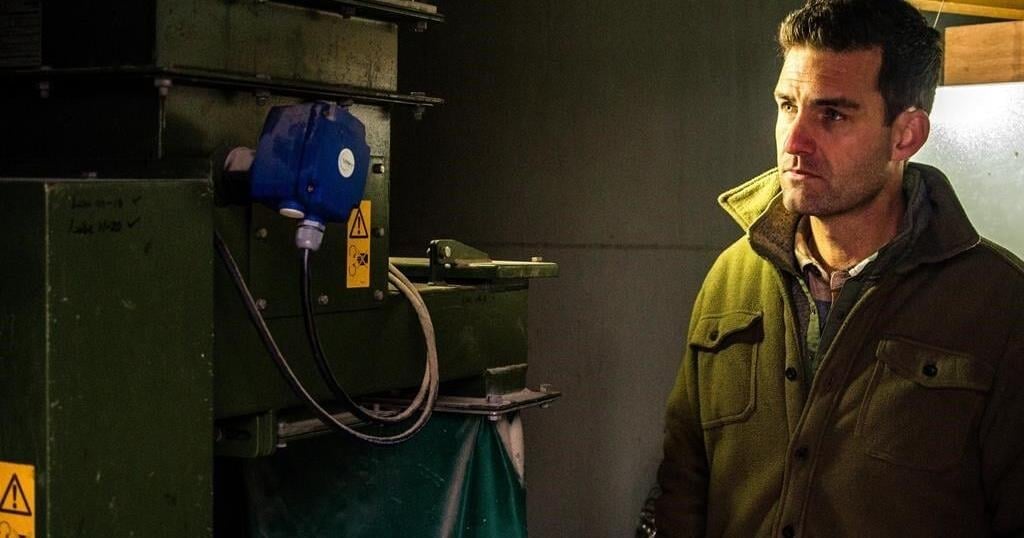TORONTO – A new charter challenge set to get underway on Monday will test the constitutionality of a controversial Ontario law that allows hospitals to place discharged patients into long-term care homes not of their choosing or face a $400-per-day charge if they refuse.
The Advocacy Centre for the Elderly and the Ontario Health Coalition argues the law, known as the More Bed Better Care Act or Bill 7, violates the Charter of Rights and Freedoms.
The province disagrees.
One core item the court will address is whether the new law has fulfilled its purpose by improving the flow of patients. Documents filed with court reveal the two sides have reached different conclusions on that question.
Premier Doug Ford’s government rammed Bill 7 through the legislature within days in September 2022, bypassing public hearings.
The law allows hospital placement coordinators to choose a nursing home for a patient who has been deemed by a doctor as requiring an “alternate level of care,” or ALC, without consent.
They can also share the patient’s health information to such homes without consent. Patients can also be sent to nursing homes up to 70 kilometres from their preferred spot in southern Ontario and up to 150 kilometres away in northern Ontario. The law sparked outrage among seniors.
In its factum filed with court, the organizations opposing bill 7 say it has not had its intended effect of reducing the number of so-called ALC patients. They point to government data from Ontario Health that shows the number of these patients has actually increased by 30 per cent more than a year after the law took effect.
There were about 2,300 discharged patients waiting in hospital for a spot in a nursing home at the end of January, the court documents say.
“The evidence belies any contention that Bill 7 has actually expedited the transition from hospital for the vast majority of ALC-LTC patients,” the organizations say.
The primary reason for the bottleneck is not the patients fault, they say.
“The most significant cause of delay in transitioning from the hospital is simply the lack of long-term care beds as evidenced by the very long wait lists for admissions particularly for homes that provide better and more suitable care,” the organizations wrote.
Because the law is ineffective, they argue, it is arbitrary. They say the law should be struck down.
Ontario argues the increased number of so-called ALC patients is not proof of the law’s ineffectiveness, but due to a spike in population growth.
The province also points to evidence of several hospital administrators who support the law and say it has increased patient flow.
Trillium Health Partners, which runs two large hospitals in Mississauga, Ont., said the law has helped move 240 ALC patients to nursing homes over a recent three-month span.
“In the absence of Bill 7, I expect patient flow would decrease, as more acute beds would be occupied by patients who do not require acute care, leading to more patients waiting for a bed,” Scott Jarrett, the chief operating officer of Trillium, said in an affidavit.
Other hospital leaders cited similar progress.
The Advocacy Centre and the Ontario Health Coalition also say the law largely targets seniors of poor mental and physical health and deprives them of their ability to choose where to live and how their health information is shared.
More than 80 per cent of ALC patients are 65 or older and the vast majority live with incurable conditions usually associated with age. The law, they argue, interferes with the Charter’s right to life, liberty and security.
“Bill 7 infringes an ALC-LTC patient’s liberty rights by depriving them of personal autonomy with respect to their medical treatment and health care,” the organizations argue.
“Simply put, Bill 7 clearly deprives ALC-LTC patients of the fundamental rights to informed consent to where they are likely to spend their final days, and to the protection of their personal health information.”
What both sides agree on is that there are not enough hospital or long-term care beds in Ontario. While the province is building more hospitals and incentivizing the construction of dozens of nursing homes, there’s nowhere near enough supply to meet demand, the documents say.
Provincial lawyers say the law is needed to open up beds for patients needing to get into a hospital.
“The purpose of a hospital bed is not to act as a waiting area for (long-term care) home admission,” the province says.
The province argues patients do not have a Charter right to live free of charge in a hospital after discharge. Nor does the law discriminate on the basis of age or disability, it says.
“Bill 7 does not infringe anyone’s Charterrights,” provincial lawyers wrote.
On Jan. 31, 2024, there were 2,243 ALC patients awaiting a spot in a nursing home who had spent a total of nearly 200,000 days in hospital beds, the province said.
The Charter does not protect against the sharing of private health information, provincial lawyers argue, pointing to several other laws that lay out how personal health information can be shared, including under court orders.
The province also said the law does not force patients into any particular nursing home. The patient can refuse such a placement.
“The consequence for an ALC patient who refuses to leave hospital despite being discharged is purely economic: they must pay a portion of the cost of the publicly funded hospital bed that they have chosen to occupy,” the province said.
The organizations say the threat of a $400 per day fine is “coercive,” while the province contends it acts as a “deterrent” to patients in the effort to get them to agree to be moved to a home they didn’t choose.
Only five people have been charged under the law, the health minister’s office said recently.
The threat of a fine didn’t deter Ruth Poupard’s family. Michele Campeau, who has power of attorney for her 83-year-old mother, refused a hospital’s attempts to force her into a long-term care home she hated in Windsor, Ont. Campeau said the front door was unlocked, so she walked right in only to find the place filthy with little staff. She walked back out and decided it wasn’t the place for her mom.
Hôtel-Dieu Grace Healthcare began charging the family $400 per day and they ended up with a $26,000 bill in the spring, which Campeau refused to pay. Poupard ended up in her top choice for a nursing home.
By mid-September, no one had come calling for the money, Campeau said.
“I would encourage others to fight back because in the end, the fight is worth more than putting your loved one in a horrible situation,” Campeau said.
This report by The Canadian Press was first published Sept. 23, 2024.

























